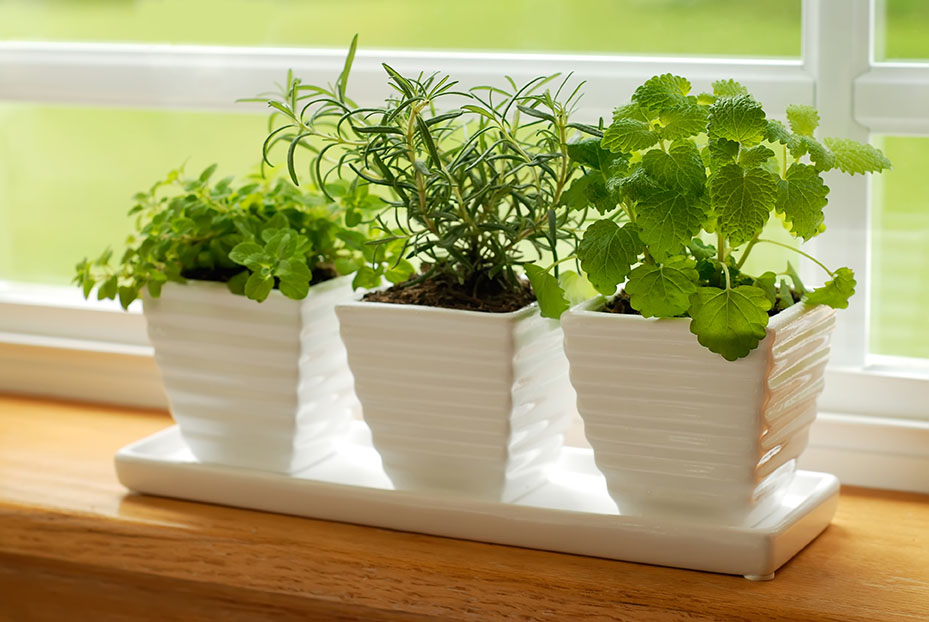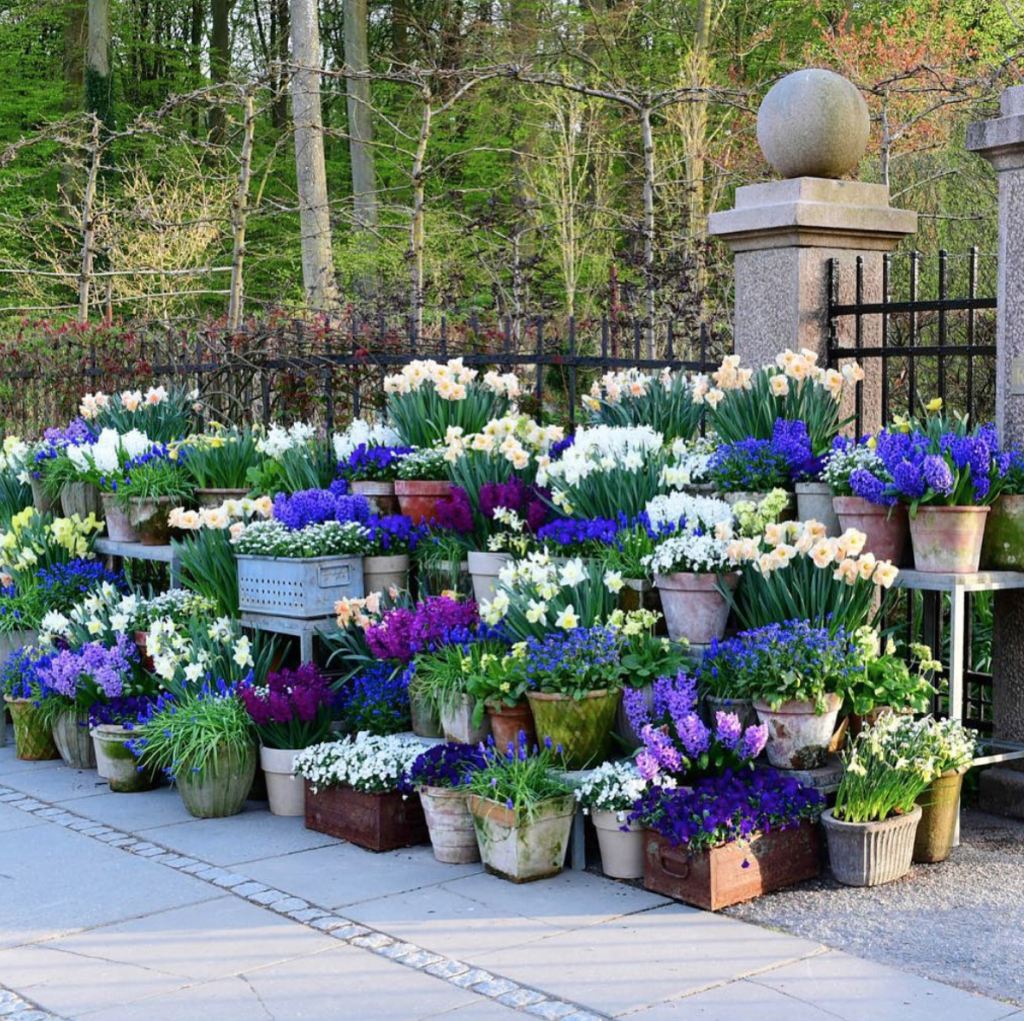How to Grow Herbs in Small Apartments: A Comprehensive Guide

Are you dreaming of a lush, green oasis in your small apartment? Do you yearn for the fresh, aromatic scents of herbs wafting through your urban dwelling? Growing herbs in small apartments is not only possible but also incredibly rewarding. Imagine plucking fresh basil for your homemade pesto or snipping some mint for your mojito. With a bit of creativity and the right techniques, you can transform your apartment into a thriving herb garden. Let's dive in!
Why Grow Herbs in Small Apartments?
Urban gardening is more than just a trend; it's a lifestyle. Growing herbs in your apartment offers numerous benefits. Not only do herb plants add a touch of nature to your living space, but they also provide fresh ingredients for your culinary adventures. Moreover, indoor plants can improve air quality and create a calming atmosphere. So, why not bring a bit of the outdoors inside?
Getting Started: Choosing the Right Herbs
Before you start your container gardening journey, it's essential to choose the right herbs. Some herbs thrive indoors, while others prefer outdoor conditions. Here are a few herb plants that are perfect for apartment gardening:
- Basil: This versatile herb loves sunlight and warmth. It's ideal for windowsills that get plenty of sun.
- Mint: Mint is a hardy herb that can tolerate various conditions. It's perfect for shadier spots in your apartment.
- Parsley: This herb is relatively easy to grow and can thrive in both sunny and partially shaded areas.
- Rosemary: Aromatic and flavorful, rosemary prefers sunny spots and well-drained soil.
- Thyme: This herb is low-maintenance and can grow well in sunny windowsills.
Essential Tools and Supplies
To start your herb garden, you'll need a few essential tools and supplies:
- Containers: Choose containers that are at least 6 inches deep and have good drainage.
- Soil: Use well-draining potting soil specifically designed for herbs.
- Watering Can: A small watering can with a fine nozzle is ideal for watering herbs.
- Fertilizer: A balanced, slow-release fertilizer can help your herbs grow strong and healthy.
- Grow Lights: If your apartment lacks natural light, consider investing in grow lights to ensure your herbs get enough light.
Setting Up Your Herb Garden
Choosing the Right Location
The first step in setting up your herb garden is choosing the right location. Most herbs need at least 4-6 hours of sunlight per day. Windowsills, balconies, and even well-lit corners of your apartment can be perfect spots for your herb garden. If you're short on natural light, grow lights can be a lifesaver.
Preparing Your Containers
Once you've chosen your location, it's time to prepare your containers. Make sure your containers have drainage holes to prevent waterlogging. Fill your containers with well-draining potting soil, leaving enough space for your herb plants.
Planting Your Herbs
Now comes the fun part—planting your herbs! Gently remove your herb plants from their nursery pots and place them in your prepared containers. Fill in any gaps with more soil, ensuring the roots are well-covered. Water your herbs thoroughly after planting.
Caring for Your Herb Garden
Watering
Watering is crucial for the health of your herb plants. Most herbs prefer well-drained soil and don't like to sit in water. A good rule of thumb is to water your herbs when the top inch of soil feels dry. Use a watering can with a fine nozzle to avoid overwatering.
Light
Herbs need plenty of light to grow. If your apartment doesn't get enough natural light, consider using grow lights. These lights mimic the spectrum of natural sunlight and can help your herbs thrive.
Fertilizing
Fertilizing your herbs can give them the nutrients they need to grow strong and healthy. Use a balanced, slow-release fertilizer every 4-6 weeks. Be sure to follow the instructions on the fertilizer package to avoid overfeeding your herbs.
Pruning
Pruning your herbs not only encourages bushier growth but also provides you with fresh herbs for your cooking. Regularly pinch back the tips of your herb plants to promote new growth.
Troubleshooting Common Problems
Even with the best care, you might encounter some common problems when growing herbs in small apartments. Here are a few tips to help you troubleshoot:
- Yellowing Leaves: This could be a sign of overwatering or underwatering. Check the soil moisture and adjust your watering schedule accordingly.
- Leggy Growth: If your herbs are growing tall and spindly, they might not be getting enough light. Move them to a brighter spot or use grow lights.
- Pests: Indoor plants can attract pests like aphids and spider mites. Regularly inspect your herbs for signs of pests and treat them with organic pesticides if necessary.
Creative Ways to Display Your Herb Garden
Your herb garden doesn't have to be just functional; it can also be a beautiful addition to your apartment. Here are a few creative ways to display your herb garden:
- Hanging Plants: Use macrame hangers or wall-mounted shelves to display your herbs vertically.
- Tiered Stands: A tiered stand can help you maximize space and create a visually appealing herb garden.
- Window Boxes: If you have a balcony or a large windowsill, window boxes can be a great way to showcase your herbs.
Conclusion
Growing herbs in small apartments is not only possible but also incredibly rewarding. With the right tools, techniques, and a bit of creativity, you can transform your urban dwelling into a lush, green oasis. Imagine the joy of plucking fresh herbs for your meals and the satisfaction of nurturing your own indoor garden. So, why wait? Start your herb gardening journey today and bring a touch of nature into your home.
FAQs
What are the best herbs to grow indoors?
- Some of the best herbs to grow indoors include basil, mint, parsley, rosemary, and thyme. These herbs are relatively easy to care for and can thrive in indoor conditions.
How much light do herbs need?
- Most herbs need at least 4-6 hours of sunlight per day. If your apartment doesn't get enough natural light, you can use grow lights to ensure your herbs get the light they need.
How often should I water my herbs?
- The watering frequency depends on the type of herb and the conditions in your apartment. A good rule of thumb is to water your herbs when the top inch of soil feels dry.
Can I grow herbs from seeds?
- Yes, you can grow herbs from seeds. However, it may take longer for the herbs to mature compared to starting with seedlings. Follow the instructions on the seed packet for the best results.
How can I prevent pests in my herb garden?
- Regularly inspect your herbs for signs of pests. Keep your plants clean and well-ventilated. If you notice any pests, treat them with organic pesticides to avoid harming your herbs.


0 Response to "How to Grow Herbs in Small Apartments: A Comprehensive Guide"
Post a Comment